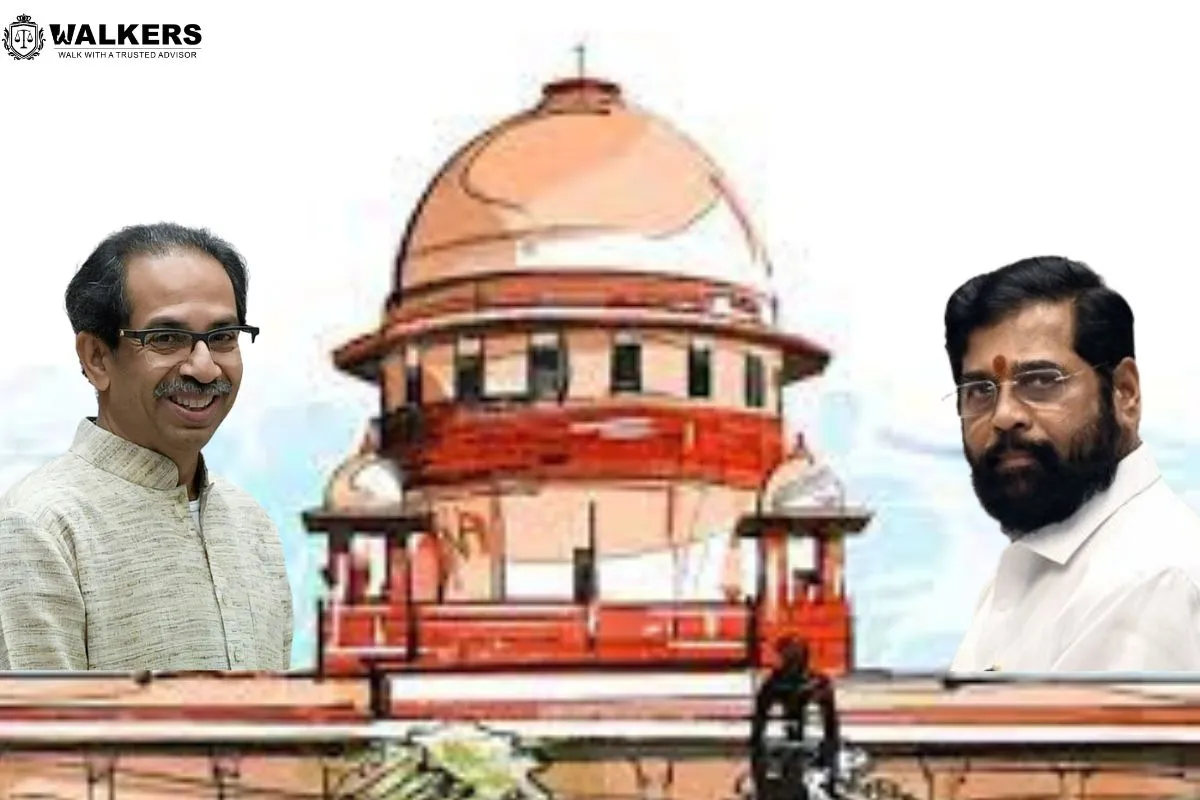


The Supreme Court has ruled that the decision of the Speaker of the Maharashtra Legislative Assembly to recognize the whip nominated by Eknath Shinde's rebel group as the Chief Whip of the Shiv Sena is illegal. The Court also declared that the recognition of Eknath Shinde as the Leader of the Shiv Sena Legislature Party was unlawful, as the Speaker did not verify if the decision had the endorsement of the political party.
The issue at hand was whether the power to appoint the party whip lies with the political party or the legislature party. The rebel group led by Shinde claimed that they are the "legislature party" since they have the majority of MLAs, and therefore, they have the right to appoint the party whip and group leader.
To resolve the matter, the Court referred to Paragraph 2 of the Tenth Schedule of the Constitution, which deals with defections. Paragraph 2(1)(b) of the Tenth Schedule states that the direction to vote or abstain from voting must be issued by the political party or any person or authority authorised by it. The Court noted that while the schedule does not define "political party," the explanation to Paragraph 2 provides that an elected member of a House shall be deemed to belong to the political party by which they were set up as a candidate for election.
The Court held that the power to appoint the party whip and leader lies with the political party and not the legislature party. It stated that the Tenth Schedule would become unworkable if the term "political party" is read as the "legislature party." The Court's decision has significant implications for the functioning of political parties and legislative bodies across the country..
In a recent judgement, the Indian Supreme Court clarified that the power to appoint a Whip in the legislature lies with the political party and not with the legislature party. The court emphasized that recognizing the appointment of a Whip by the legislature party would enable a group of MLAs to act separately from the political party that fielded them in the elections. The court also pointed out that the Representation of the Peoples Act does not recognize the concept of a legislature party and allows a political party to register even if it does not have representation in the legislature.
The case before the court involved a dispute over the appointment of the Leader and Chief Whip of the Shiv Sena Legislature Party in Maharashtra. The court held that the appointment of these positions by a faction of the party without determining if they represented the will of the political party was illegal. The court also directed the Speaker of the Maharashtra Legislative Assembly to recognize the Whip and Leader authorized by the political party and to decide the pending disqualification petitions within a reasonable period.
The court clarified that the Election Commission's decision to recognize a group as the official Shiv Sena will operate only prospectively and will not impact the ongoing disqualification proceedings. Finally, the court held that the Governor's decision to invite a party to form the government was justified in this case as the previous Chief Minister had voluntarily resigned without facing a floor test. The court, however, noted that the Governor's decision to call for a floor test was wrong, and the Speaker was also in error, but it cannot order a status quo ante and reinstate the previous government.
Click Here to: Download/View Related File
TAGS: India Supreme Court Maharashtra political party legislature party anti-defection law whip leader disqualification floor test Uddhav Thackeray Eknath Shinde BJP.